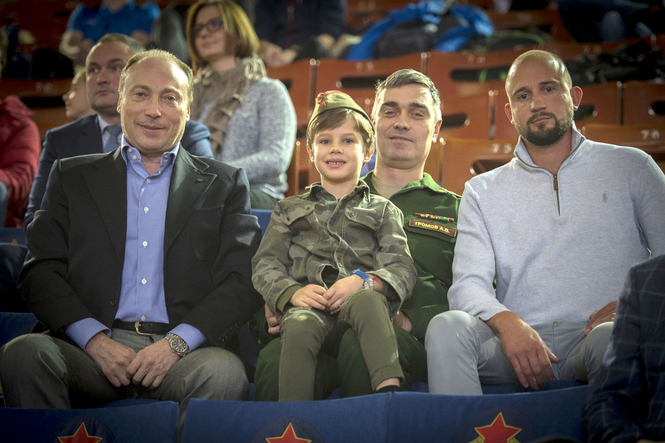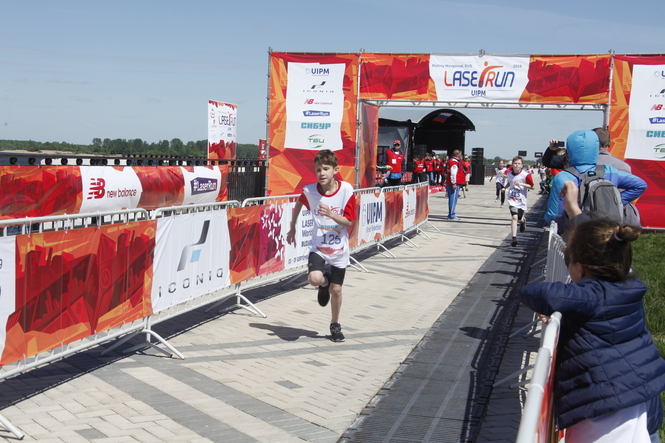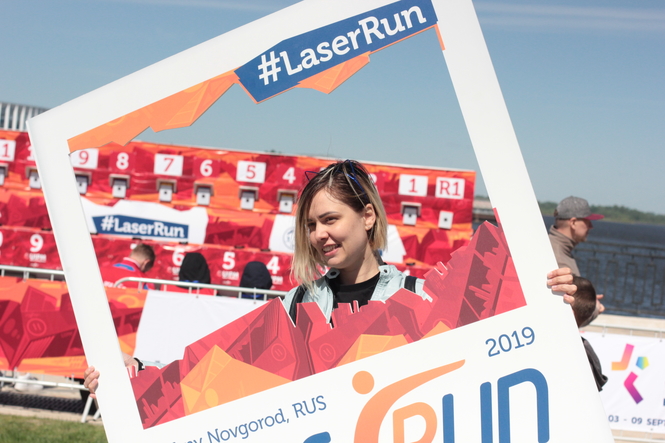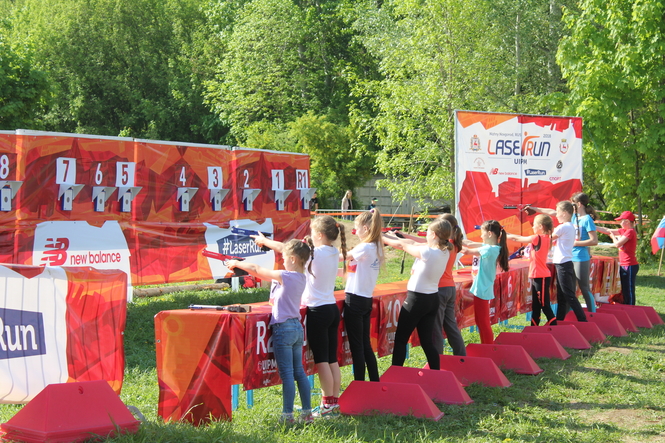Laser Run Spotlight: Social mobility on a giant scale across regions of Russia
Anyone who has attended a Modern Pentathlon competition in the world’s largest country will testify to the size and scale of the event.
Russia also does Laser Run competitions on an impressive scale – with 11 editions of the Global Laser Run City Tour illustrating the ambition of the Russian Modern Pentathlon Federation (RMPF) to embrace the worldwide phenomenon.
Around 3,000 athletes in Russia have experienced GLRCT as a result, with a record 550 taking part in Nizhny Novgorod in 2019. Locally, the Russian pentathlon community has also arranged many smaller-scale Laser Run competitions following GLRCT manuals and guidelines.
In 2020, the RMPF had committed to staging six more editions, including one within a new facility in Smolensk, before the suspension of all UIPM Sports activity due to the COVID-19 Coronavirus pandemic. In this interview, RMPF President Viacheslav Aminov describes the qualities of Laser Run that have been key to its popularity and rapid growth, both globally and within Russia.

RMPF President Viacheslav Aminov (left) and Rio 2016 Olympic champion Alexander Lesun (RUS, right) attend a military Laser Run competition in Moscow (RUS) in 2019
Q: Why do you think the GLRCT has been successful?
A: This phenomenon has many aspects and it’s not without reason that I use the word phenomenon, because I believe Laser Run is more than a sport. This element of our great Olympic sport, Modern Pentathlon, has turned into a global social movement that is welcomed by all parts of society and develops and replenishes with new participants on all continents.
This movement involves the people of absolutely all ages (from 5 to 80), whole families, city mayors and former high-level athletes – and people who have never been involved in any kind of sports participate in it! This is one aspect.
The second aspect is the simplicity of the organization – very different to higher-level sporting competitions which can be very difficult, expensive and time-consuming to arrange. Host cities of all sizes want to demonstrate their abilities, they want their citizens to spend their leisure time actively and lead a healthy lifestyle.

Q: What have been the benefits of the GLRCT to the Russian Federation of Modern Pentathlon?
A: Russia is a very large country, its length from west to east is 10,300km and Modern Pentathlon federations are open in almost all of Russia from Kaliningrad to Novosibirsk.
We try to hold Russian Championships not only in Moscow and nearby cities but also in the regions, and it was GLRCT that revived the regions. We deliberately concentrated GLRCT in the regions so that they could prove their credentials from a social, cultural, organisational and communicative point of view. And it worked.
Since 2017, such beautiful cities as Rostov, Nizhny Novgorod, Smolensk, Chelyabinsk, Cheboksary, Kostroma and Kaliningrad have hosted the GLRCT and they have turn these events into city festivals, holding competitions in the historical centres where they have raised their prestige and the reputation of our Federation in the eyes of city authorities.
Each regional federation directly communicates with UIPM on the organisation, registration and other logistics concerning their tournaments. These competitions have played a great role in the life of society and contributed to the increased activity of regional federations.

Q: The success of Laser Run has led to the launch of virtual and online competitions such as UIPM’s #LaserHomeRun. Do such virtual sports have a future?
A: Our entire planet is currently experiencing an enormous tragedy, and one of the victims of this scourge is sport. And what is surprising? Everyone has begun to support and cheer each other.
Thanks to modern technical means we are isolated but we are not divided – athletes constantly communicate with each other online and, in such conditions, the proposal to hold online competitions was like a breath of fresh air.
All young athletes and their parents in Russia used their own initiative to participate, our Masters too. The idea of UIPM was accepted with a bang. And as soon as these competitions ended, our Federation really wanted to continue, and three days after the end of this tournament we decided to organize our all-Russian ‘online Laser Run at home’ and began to prepare.
To make a quality product (and our semi-finals will be held in all regions of Russia, and then two days later we will hold the Finals and show them online) takes time. We recruited two experienced IT specialists and developed a competition format.
I think that if everything works out, we will hold such tournaments during quiet times of the year, for example in the off-season when there is less opportunity to communicate with our community.
I am sure that the founder of our sporting movement, Baron Pierre de Coubertin, would be proud of UIPM and all of us for honouring the traditions he laid down. Initiatives such as Laser Run and virtual sports help us to fully justify the name of our sport: Modern Pentathlon.




